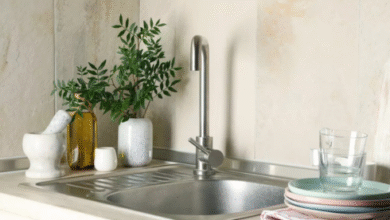
5 Stand-Out Hotels Proving the Region Sits on the Front Line of Hotel Tech Innovation
The digital transformation of hospitality tech products is in full throttle in Oceania. Across Australia, New Zealand and the Pacific Islands, a handful of forward-thinking properties are turning rooms into responsive, app-driven ecosystems and swapping housekeeping carts for autonomous robots. Below is a list of five stand-out hotels that prove the region now sits on the front line of hotel tech innovation.
Hyatt Regency Sydney, Australia
Sydney’s largest premium hotel is also its most futuristic thanks to a fleet of Phantas cleaning robots that glide through corridors after breakfast, mapping each floor in real time and adjusting water use and suction power to the level of soiling. Guests rarely notice the robots, but the data they collect feeds a cloud dashboard that lets managers predict traffic peaks and redeploy staff to high-touch tasks. The result is a 20 per cent reduction in labour hours and verifiably higher guest-satisfaction scores, according to the hotel’s six-month pilot report.
Eos by SkyCity, Adelaide, Australia
Eos approaches the smart-room concept as if it were building a personalized cinema. Each of the 120 rooms centers on a 65-inch 4K television paired with a tablet that doubles as a universal remote. From that single iPad interface, travelers dim the micro-LED ceiling lights, queue a Spotify playlist on the sound-bar, set their exact pillow firmness via an in-headboard air bladder, and book a slot at the on-property spa. The system remembers preferences, so repeat visitors find their favored light temperature and streaming platform already loaded the moment they tap digital check-in.
W Brisbane, Queensland, Australia
Marriott’s design-driven W brand has always targeted early adopters, and its Brisbane outpost may be the most accomplished. Here, Mobile Key is more than a tap-to-unlock gimmick; once the app confirms proximity, it triggers a contactless lift call and pre-cools (or heats) the room to the guest’s saved climate profile before the door even swings open. The same app routes room-service orders, spa bookings and luggage requests to a back-of-house AI that bundles jobs to minimise elevator runs, trimming wait times and energy use. For a city famous for subtropical heat, that seamless thermal management feels less like novelty and more like thoughtful design.
The Hotel Britomart, Auckland, New Zealand
New Zealand’s first 5-Green-Star hotel proves sustainability and high tech are natural allies. Sensors in each guest room continuously modulate lighting, HVAC / hotel PTAC units and automated blinds, switching into energy-saving sleep mode the second occupancy detectors notice you have stepped out. A unified access-control platform links door locks, elevators and CCTV, so one secure RFID card (or smartphone wallet) gets you from lobby to sky-garden without a hiccup while giving management granular, building-wide analytics on traffic flows. Smart design touches, such as blackout panes that tint electronically for heat gain control, save roughly 50 megawatt-hours a year, according to the hotel’s latest sustainability report.
Six Senses Fiji, Malolo Island
Set on an island better known for hammocks than hardware, Six Senses Fiji delivers a masterclass in guest-led personalization. Well before check-in, travelers download the OKKAMI-powered Six Senses app, design their own pillow menus, schedule surf lessons, pick minibar favorites and even choose which essential-oil blend should waft through their villa on arrival. Once on site, the same app functions as a room key, a lighting panel and a concierge live-chat—all of which slashes physical touch points and paper collateral. Beyond convenience, the platform’s analytics have let the resort cut food waste by forecasting breakfast demand down to the muffin.
Why this matters
A 2025 survey of Asia-Pacific travelers found that 72 per cent “expect seamless digital services” as a basic component of luxury, eclipsing even room size and view in the hierarchy of decision factors. For hoteliers, that shift is about more than bragging rights: connected systems deliver energy savings, sharper labour allocation and data-rich guest profiles that feed the next wave of service personalization.
Oceania’s most advanced properties show that high-tech hospitality isn’t confined to Silicon Valley prototypes or Tokyo capsule rooms, it’s already enriching beach resorts in Fiji, boutique eco-builds in Auckland and harbor-side towers in Australia. For travelers who like their sunset cocktails served with a side of cutting-edge convenience, the future is waiting Down Under and across the Pacific.




